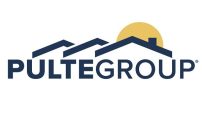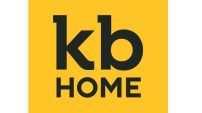Mortgage applications rose by 4.1% on a seasonally-adjusted basis from one week earlier for the week ending January 12th, 2018, according to the Mortgage Bankers Association’s Weekly Mortgage Applications Survey.
On an unadjusted basis, the Market Composite Index, a measure of mortgage loan application volume, rose 32% over the previous week. The Refinance Index rose 4% over the same period. The seasonally-adjusted Purchase Index rose 3%, and the unadjusted Purchase Index rose 35%.
The refinance share of mortgage activity fell to 52.2% of total applications, down from 52.9% the previous week. The adjustable-rate mortgage (ARM) share of activity rose to 5.2% of total applications. The FHA share of total applications rose to 11.7% from 11.1%, the VA share fell to 10.7% from 11.4%, and the USDA share of total applications rose to 0.8% from 0.7%.
“It is very interesting to see mortgage applications increase in a week that we saw interest rates rise,” says Brian Surgener, senior vice president of strategy and analytics at BBMC Mortgage. “Traditionally these patterns are inverse. The increase in mortgage applications may be due to post holiday demand or we may be seeing the impacts of a perceived strong economy and a new norm with higher interest rates.
“Since the new year, lead providers have been flushed with leads. So call it fear or call it patience, but overall rates are still low enough for consumers to apply for new loans. With interest rates starting to look like they are poised to rise we may see a number of the fence sitters decide to finally refinance out of ARM’s or take advantage of some appreciation in home value.”
The average contract interest rate for 30-year fixed-rate mortgages with conforming loan balances ($453,100 or less) rose from 4.23% to 4.33%, up to its highest level since March 2017. Points for 80% loan-to-value ratio (LTV) loans rose to 0.54 from 0.35. (All 80% LTV loan reports include the origination fee.) The effective rate increased from last week.
The average contract interest rate for 30-year fixed-rate mortgages with jumbo loan balances (greater than $453,100) also rose to its highest level since March 2017, 4.25%, from 4.16%. Points rose to 0.36 from 0.23 for 80% LTV loans, and the effective rate increased from last week.
The average contract interest rate for 30-year fixed-rate mortgages backed by the FHA also rose to its highest level since March 2017, 4.30%, from 4.16%. Points rose to 0.65 from 0.42 for 80% LTV loans, and the effective rate increased from last week.
The average contract interest rate for 15-year fixed-rate mortgages rose to 3.77% from 3.66%, up to its highest level since January 2014. Points for 80% LTV loans rose to 0.44 from 0.42, and the effective rate increased from last week.
The average contract interest rate for 5/1 ARMs rose to 3.62% from 3.50%, up to its highest level since April 2011. Points for 80% LTV loans fell to 0.48 from 0.51, and the effective rate increased from last week.



